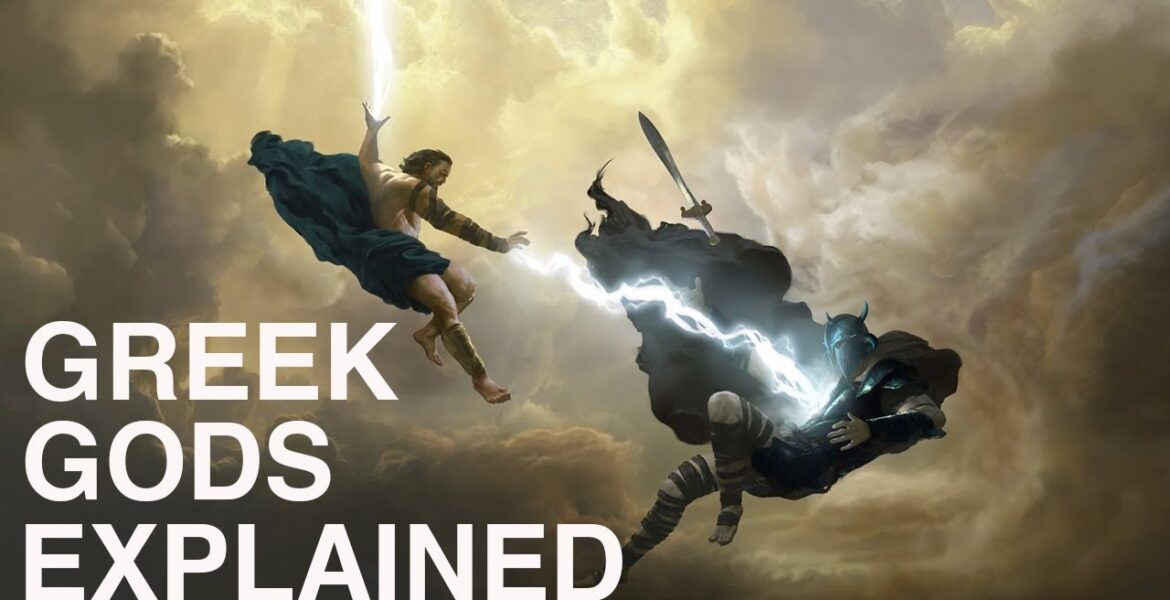The Greek Gods represent humanity at its best and worst. From the violent and destructive Ares to the beautiful and seductive Aphrodite, Greek mythology demonstrates the epic power struggle between parents and children in an endless quest to gain control over the world.
Tales pass down from each generation showing them to be some of the most influential deities in human history that continue to have a significant impact to this day.
These Greek gods are often called the “Olympic gods” because some were said to live on Mt. Olympus, the highest mountain in Greece, towering over the Gulf of Thermaïkós.
As captivating as they are, individual Greek gods remain a hodgepodge to many. There are fully twelve Olympians and other divinities as well. How many of us could name even half of them?
Doing so is tricky because of the Romans. When they conquered Greece, they renamed all but one of the gods. For instance, Aphrodite, the goddess of love, became Venus. Zeus, the mightiest of the gods, became Jupiter. The war-god Ares was rebranded as Mars. Only Apollo, revered by successive Roman emperors, retained his Greek name.
The twelve Greek gods are Zeus, Poseidon, Hera, Aphrodite, Apollo, Artemis, Demeter, Hephaistos, Hermes, Ares, Athene and Dionysos. Other divinities in Greek mythology often associated with them include Hades, Hekate and Hestia.
Zeus, the Greek god of gods
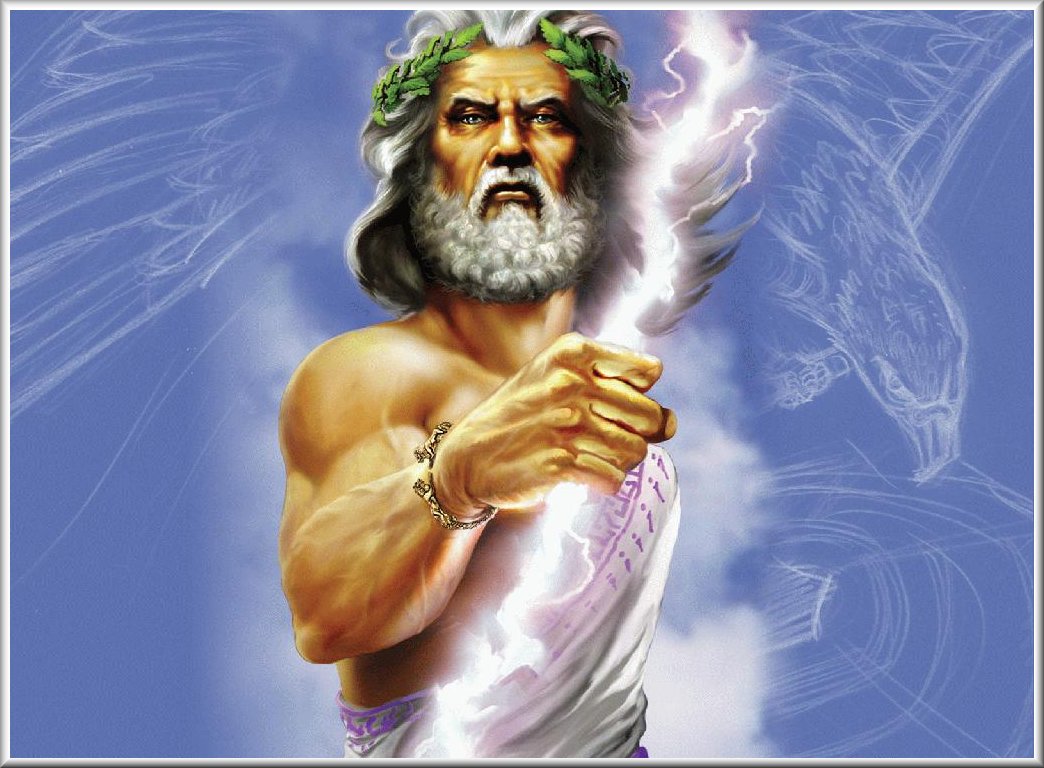
Zeus, son of Kronos and Rhea, sat at the head of the pantheon. He was the Greek god of gods. Notorious for throwing lightning bolts when angry, he was the sky and thunder god. Renowned in Greek mythology for his numerous erotic adventures, he fathered three of the Olympians. Utterly amoral, Zeus had multiple wives, conquests and children.
Poseidon, the God of the seas
Zeus’ brothers were Poseidon and Hades. They divided up the world between themselves by drawing lots, with Zeus claiming the sky, Poseidon the seas and Hades (as the loser) the underworld. Poseidon established a vast estate for himself under the seas. Hades, who rarely emerged from underground, built a palace deep in the earth's bowels.
Devoted to bottle-nosed dolphins and infamous for creating earthquakes, Poseidon ruled the seas and rivers. To impress Demeter, he made the horse (“hippos” in Greek), and maintained elaborate stables for his stallions on his underwater estate. Like Zeus, he had numerous affairs with goddesses, nymphs and mortal women.
Hades was a glowering, humourless Greek god. Not an Olympian, he ruled the underworld where all mortals went upon death. Famous for absconding with Demeter’s daughter, Persephone, he was hated among all mortals for his role as overseer of the afterlife. Greeks, afraid to draw his attention to themselves, would even avoid saying his name.
Hera in Greek Mythology
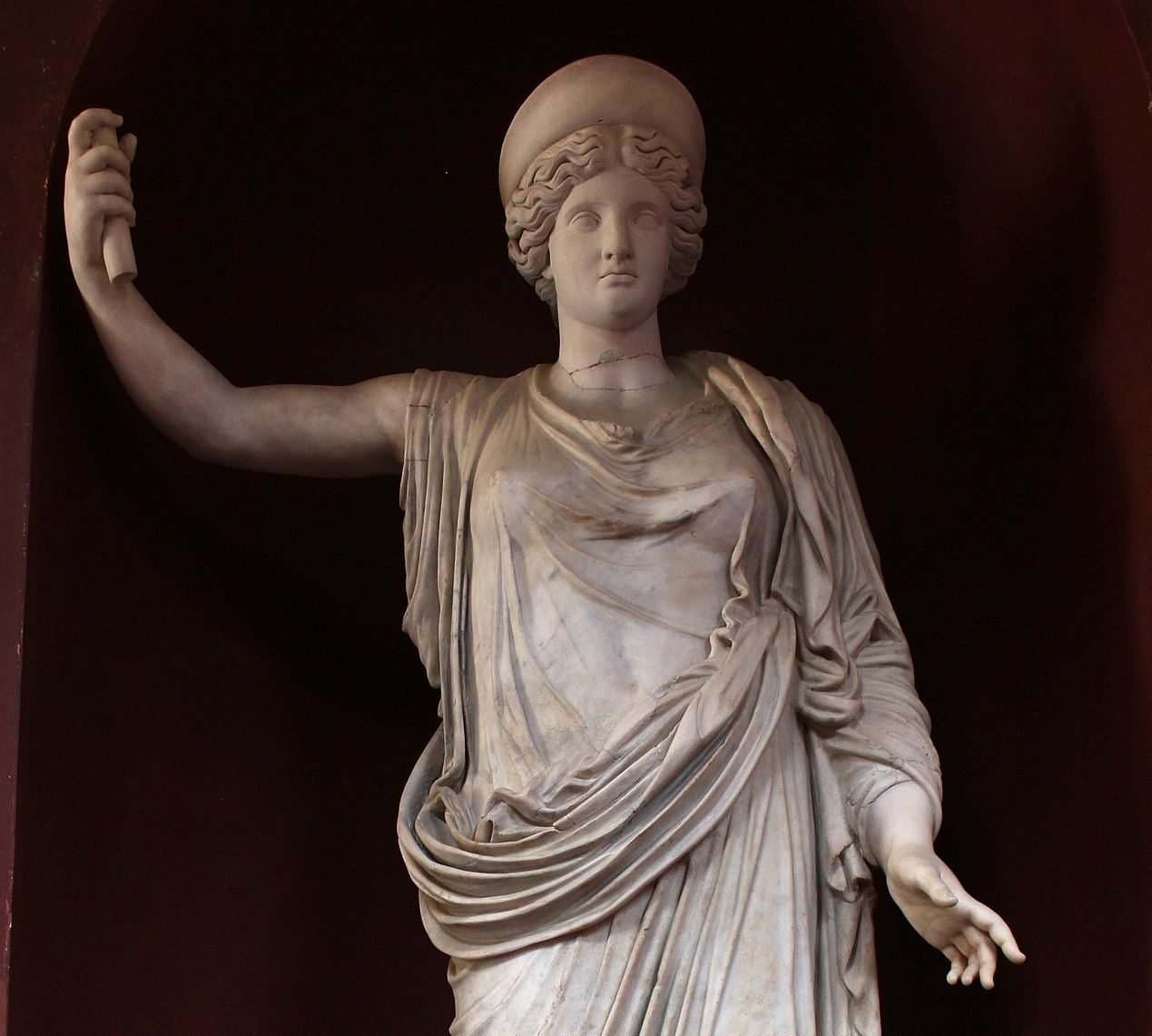
One of Zeus’ seven wives was the Olympian Hera, who was also his sister. She played the unenvious role of a jealous wife, as Zeus constantly had affairs.
The astonishingly beautiful Aphrodite
The goddess Aphrodite, astonishingly beautiful, reigned over all matters concerning love. She protected lovers and watched over women in childbirth. She was married to the Olympian Hephaistos but was unfaithful, having a lengthy affair with Ares, with whom she had two children.
Greek gods Apollo and Artemis
Apollo and Artemis were brother and sister in Greek mythology. They were born to Leto on the island of Delos. Leto, like so many girls, had caught Zeus’ eye. She fled from Hera’s fury to Delos, where she promised the few inhabitants fame and glory if they would shelter her in childbirth.
They did so, and Apollo — also known as Phoebus — quickly became revered for his ability to heal and prophesy. He founded Delphi, home of the most important oracle in Greece. Both Apollo and Artemis were skilled archers. Artemis was a protector of young girls and animals, yet was described by ancient writers as constantly pursuing games with her band of loyal nymphs.
Demeter the earth goddess
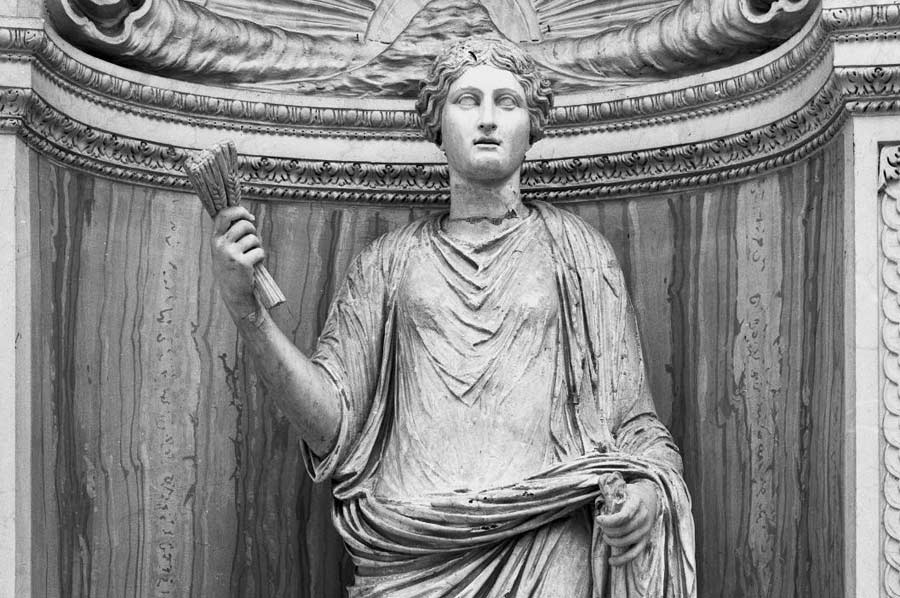
According to Greek mythology, Demeter was an earth goddess celebrated for providing grains to mortals. When Hades stole her daughter Persephone, Demeter’s grief ruined all of earth’s crops. After humans faced starvation (and presumably could no longer serve the gods), Zeus asked Hekate and Hermes to travel to the underworld to persuade Hades to release Persephone.
They succeeded, and she was returned to her mother for a portion of each year. In celebration, Demeter created the Eleusinian Mysteries in Eleusis, the small town where Persephone emerged from Hades’ darkness.
Hephaistos, the craftsman among Greek gods
Then there was Hephaistos, the Leonardo da Vinci of his time. He was a master craftsman who invented elaborate machines, including the first robots. He lived on Lemnos, designed the mansions on Mt. Olympus, and was married, however unhappily, to Aphrodite.
Hermes, the messenger of the Greek gods
Hermes, the messenger of the Greek gods, was also the protector of thieves. He was fleet of foot and depicted as having small wings on his sandals. He was also the ultimate diplomat and accompanied the dead as Charon ferried them over the River Styx to the underworld.
During the nineteenth century, the Kingdom of Greece depicted Hermes on postage stamps, implying that letters would be delivered swiftly.
War-god Ares
The Greek war-god Ares often appears in today’s cinema. He played a vital role in the 2017 Hollywood movie “Wonder Woman.” In Greek mythology, he personified bloodlust and a passion for war. His terrifying shriek was said to be heard above the din of clashing armies.
Athene, goddess of wisdom
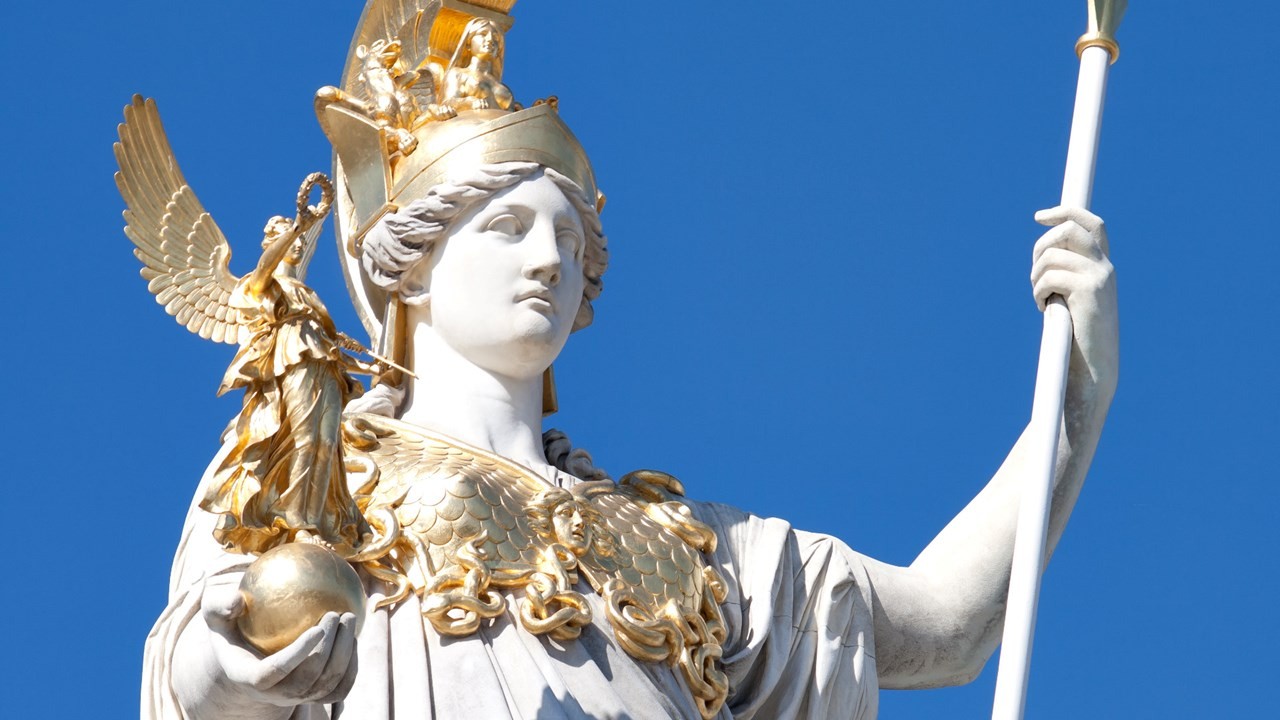
The goddess Athene, whose name often appears as Athena today, was the protector of Athens, for whom the city was named. At her birth, she sprung — fully armed — from the head of Zeus. The opposite of Ares, she was known for her wisdom and intellectual approach to war. She appeared with her owl on the Athenian tetradrachm, the silver coin known to all as the “Owl.”
Dionysus, the Greek god of wine and dance
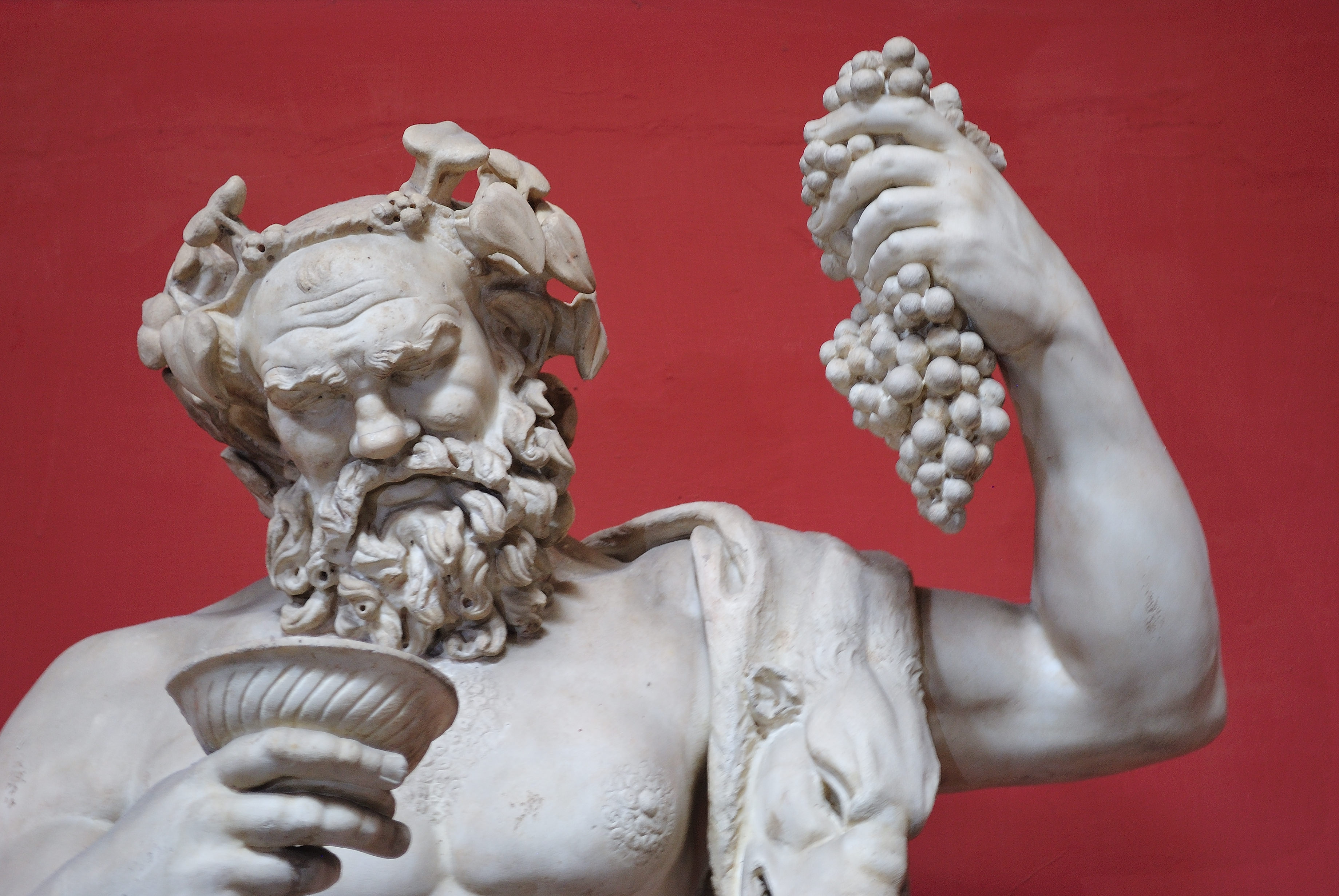
Dionysus was the outlier. He was never popular with the other divinities, so he gave the Greek people many gifts. One of the greatest was wine, which he was credited with inventing. He was also the originator of theatre — all ancient Greek tragedies were dedicated to him.
Perhaps most famously, Dionysus created the Bacchic Dances, which were women-only raves that took place at night in the countryside. Participants danced until daybreak, intoxicated with wine, song and passion. Their husbands were not amused.
The Greek gods are the ultimate personification of power, rage, lust, devotion and passion. Throughout the years, Greek mythology and the Greek Gods continue to fascinate new audiences — and remind us how little humans have changed over the millennia.
READ MORE: Smyrna: The History of Asia Minor’s Greatest Greek City.

